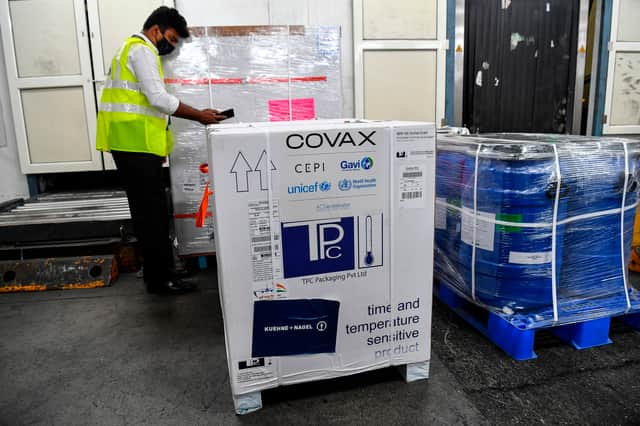The world’s first Covid vaccine sharing initiative has begun - so poorer countries can receive jabs


The World Health Organisation (WHO) has delivered the first coronavirus vaccines through its Covax vaccine sharing initiative.
Ghana received a delivery of 600,000 doses of the AstraZeneca vaccine on Wednesday (24 Feb), with priority going to healthcare workers in the country.
Advertisement
Hide AdAdvertisement
Hide AdWhat is the Covax vaccine sharing initiative?
The Covax scheme aims to deliver coronavirus vaccines to more countries around the world, helping to reduce the divide between rich and poorer nations unable to buy doses.
The initiative is planning to deliver about two billion vaccine doses globally by the end of 2021. The programme believes this should be enough to protect high risk and vulnerable people, as well as frontline healthcare workers.
Through donations, licensing and build purchases, Covax helps poorer countries acquire vaccines - something they've struggled to do, as wealthy countries compete with each other to buy the limited number of vaccines worldwide.
For lower income funded nations, which would otherwise be unable to afford these vaccines, as well as a number of higher-income self-financing countries that have no bilateral deals with manufacturers, Covax is quite literally a lifeline and the only viable way in which their citizens will get access to Covid-19 vaccines.
Advertisement
Hide AdAdvertisement
Hide AdWhere will vaccines be given first?
Ghana was chosen as the first recipient of the free vaccine delivery, with the neighbouring Ivory Coast set to receive doses later this week, the Covax alliance says. Vaccinations are expected to start next week.
The shipments are the start of "what should be the largest vaccine procurement and supply operation in history," according to a joint statement by WHO Representative to Ghana, Dr Francis Kasolo, and UNICEF's representative in Ghana, Anne-Claire Dufay.
"After a year of disruptions due to the Covid-19 pandemic, with more than 80,700 Ghanaians getting infected with the virus and over 580 lost lives, the path to recovery for the people of Ghana can finally begin," Kasolo and Dufay said.